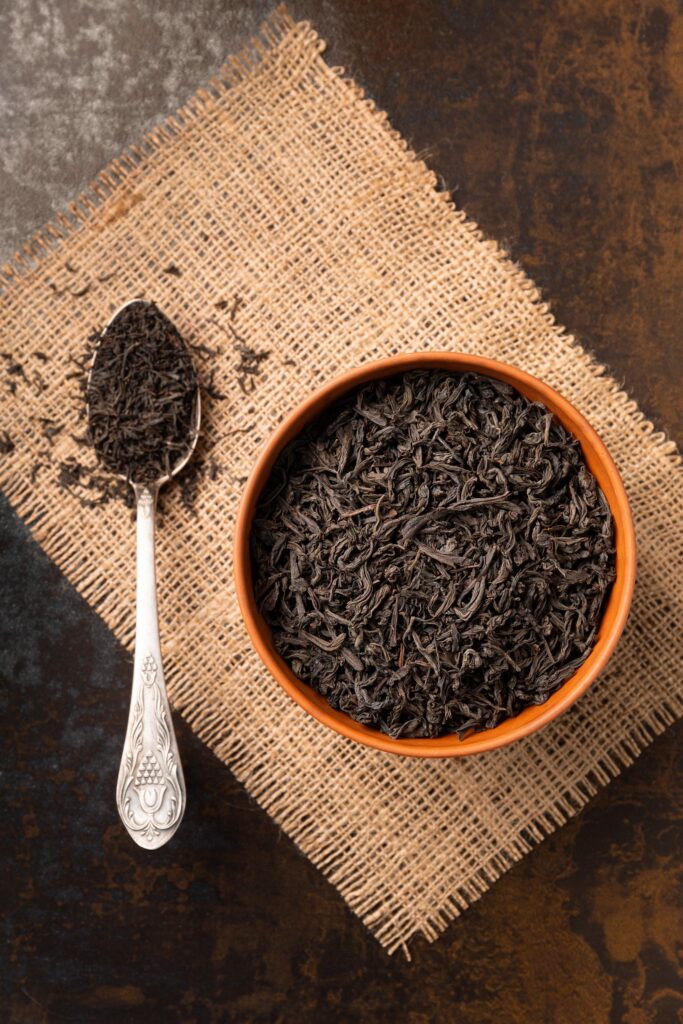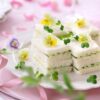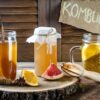
Welcome to the ultimate guide to black tea leaves, where we will uncover the best varieties, health benefits, and brewing techniques.
The Different Varieties of Black Tea
Black tea comes in a wide range of varieties, each with its unique characteristics and flavors. Let’s explore some of the most popular ones:
1. Assam Tea
Assam tea, named after the region in India where it is primarily grown, is known for its bold and robust flavor. The tea leaves are grown in lowland areas, which contributes to its strong and malty taste. Assam tea is often enjoyed with a splash of milk, making it a popular choice for breakfast teas. The rich and full-bodied nature of Assam tea also makes it a great base for chai blends. If you prefer a strong cup of tea to kickstart your day, Assam tea is the perfect choice.
2. Darjeeling Tea
Darjeeling tea, often referred to as the “Champagne of teas,” is grown in the Darjeeling region of India, nestled in the foothills of the Himalayas. Known for its delicate and aromatic flavors, Darjeeling tea is often described as having muscatel notes, reminiscent of grapes. The tea leaves are carefully hand-picked and processed, resulting in a tea that is light and refreshing. Darjeeling tea is best enjoyed without milk, allowing its subtle flavors to shine through. If you appreciate a tea that is both fragrant and flavorful, Darjeeling tea will not disappoint.
3. Earl Grey Tea
Earl Grey tea is a classic black tea infused with the essence of bergamot, a citrus fruit. This combination creates a unique and aromatic flavor profile that is loved by many. The origins of Earl Grey tea are somewhat mysterious, with several stories surrounding its creation. Regardless of its history, Earl Grey tea has become a beloved choice for tea enthusiasts around the world. The floral and citrus notes of bergamot add a refreshing twist to the traditional black tea, making it a delightful choice for afternoon tea or anytime you crave a flavorful cup.
Health Benefits of Black Tea
In addition to its delicious flavors, black tea also offers numerous health benefits. Here are some of the ways black tea can positively impact your well-being:
1. Boosts Heart Health
Studies have shown that black tea may help improve heart health. The antioxidants found in black tea, such as flavonoids, can help reduce the risk of heart disease by improving blood vessel function and reducing inflammation. Regular consumption of black tea has been associated with a lower risk of developing heart disease and stroke. So, not only can black tea satisfy your taste buds, but it can also promote a healthy heart.
2. Improves Digestion
Black tea contains compounds called tannins, which can aid in digestion. Tannins have been shown to help reduce intestinal inflammation and promote the growth of beneficial gut bacteria. This can lead to improved digestion and a healthier gut overall. If you often experience digestive issues or simply want to support your digestive system, incorporating black tea into your routine may be beneficial.
3. Enhances Mental Alertness
Black tea contains caffeine, which can help improve mental alertness and focus. The caffeine in black tea is milder compared to coffee, providing a more balanced and gradual energy boost. Black tea also contains an amino acid called L-theanine, which can promote relaxation and reduce stress. The combination of caffeine and L-theanine in black tea can enhance cognitive function and improve mental performance. So, the next time you need a pick-me-up, consider reaching for a cup of black tea.
Black Tea Brewing Techniques
Now that we’ve explored the different varieties of black tea and their health benefits, let’s dive into the art of brewing the perfect cup. While brewing tea may seem simple, there are a few key factors to consider to ensure optimal flavor extraction. Here are some expert tips and techniques for brewing black tea:
1. Water Temperature and Steeping Time
The water temperature and steeping time play a crucial role in bringing out the best flavors from black tea. Generally, black tea is best brewed with water that has been heated to around 200°F (93°C). Boiling water can scorch the delicate tea leaves and result in a bitter taste. Steep the tea for approximately 3-5 minutes, depending on your preference for strength. Keep in mind that longer steeping times may result in a more robust and tannic flavor.
2. Tea-to-Water Ratio
The ratio of tea leaves to water is another important factor to consider. As a general guideline, use one teaspoon of loose tea leaves or one tea bag for every 8 ounces (240 ml) of water. Adjust the amount according to your personal taste preferences. If you prefer a stronger cup, you can increase the amount of tea leaves slightly. It’s all about finding the perfect balance that suits your palate.
3. Choosing the Right Teapot or Infuser
The vessel you use for brewing can also impact the flavor of your tea. Opt for a teapot or infuser that allows the tea leaves to fully expand and infuse properly. Avoid using teapots or infusers with small compartments that restrict the movement of the leaves. A larger infuser or teapot with ample space will allow the flavors to develop fully, resulting in a more flavorful cup of black tea.
How to choose the best black tea leaves
Black tea is a popular beverage enjoyed by people all over the world. With its rich flavor and enticing aroma, it’s no wonder that black tea has become a staple in many households. However, with so many different varieties to choose from, it can be overwhelming to know which black tea leaves are the best. Here are some tips to help you make an informed decision.
- Consider the origin of the tea leaves: Different regions produce black tea with distinct flavors and characteristics. For example, Assam tea from India is known for its bold and malty flavor, while Darjeeling tea, also from India, has a more delicate and floral taste. Understanding the origin of the tea leaves can give you a better idea of what to expect in terms of flavor.
- Check the grade of the tea leaves: Black tea leaves are graded based on their quality. Whole leaf teas, such as OP (Orange Pekoe) or FTGFOP (Finest Tippy Golden Flowery Orange Pekoe), are considered to be of higher quality and tend to have a more complex flavor profile. On the other hand, broken leaf teas, such as BOP (Broken Orange Pekoe), are less expensive and typically have a stronger, more robust taste.
- Consider your personal preferences: Everyone has different tastes when it comes to tea. Some people prefer a strong and robust cup, while others enjoy a more delicate and nuanced flavor. Experiment with different varieties and find the one that suits your palate the best. Don’t be afraid to try new things and discover new favorites along the way.
Remember, the best black tea leaves are the ones that you enjoy the most. Trust your taste buds and explore the wide range of options available to find your perfect cup of black tea.
Popular black tea blends
Black tea blends offer a unique and flavorful twist to traditional black tea. These blends are created by combining black tea leaves with various herbs, spices, fruits, or flowers to create a harmonious and delicious infusion. Here are some popular black tea blends that you should definitely try:
- Earl Grey: Earl Grey is one of the most well-known black tea blends. It is infused with bergamot oil, which gives it a distinct citrusy and floral aroma. Earl Grey tea is loved for its refreshing and uplifting qualities, making it a perfect choice for morning or afternoon tea.
- English Breakfast: English Breakfast is a classic black tea blend that is known for its bold and robust flavor. It is typically a blend of teas from different regions, such as Assam, Ceylon, and Kenya. English Breakfast tea is often enjoyed with a splash of milk and a sweetener, making it an ideal choice for a hearty and satisfying cup of tea.
- Chai: Chai is a black tea blend that originated in India. It is made by combining black tea leaves with a mixture of spices, such as cardamom, cinnamon, cloves, and ginger. Chai tea is known for its warm and aromatic flavor, and it can be enjoyed plain or with milk and sweetener.
- Russian Caravan: Russian Caravan is a unique black tea blend that has a smoky flavor. It is created by blending black teas from China, India, and Sri Lanka. The tea leaves are traditionally dried over a smoky fire, which gives the blend its distinct smoky taste. Russian Caravan tea is perfect for those who enjoy a bold and distinctive cup of tea.
These are just a few examples of popular black tea blends. There are countless other varieties available, each with its own unique flavor profile. Don’t be afraid to explore and discover new blends that suit your taste preferences.
Black tea and its cultural significance
Black tea has a rich cultural significance in many countries around the world. It is not just a beverage but a symbol of tradition, hospitality, and social gatherings. Let’s explore the cultural significance of black tea in different regions:
- China: In China, black tea is often referred to as “red tea” due to the reddish color of the brewed leaves. Black tea has a long history in Chinese culture and is an integral part of traditional tea ceremonies. It is often enjoyed plain, without any milk or sweetener, to fully appreciate its natural flavors.
- India: India is one of the largest producers and consumers of black tea in the world. Tea plays a significant role in Indian culture and is deeply rooted in daily life. Chai, a popular black tea blend with spices, is a staple beverage in many Indian households. It is often served to guests as a gesture of hospitality and is enjoyed throughout the day.
- England: Black tea has a special place in English culture, where afternoon tea is a cherished tradition. Afternoon tea is a formal affair that typically includes a selection of black teas, finger sandwiches, scones, and pastries. It is a time for socializing and enjoying the company of friends and family.
- Morocco: In Morocco, black tea is an essential part of the traditional tea ceremony known as “Moroccan mint tea.” This ceremony involves the pouring of tea from a height to create a frothy and aerated texture. The tea is then sweetened with sugar and flavored with fresh mint leaves. Moroccan mint tea is a symbol of hospitality and is often served to guests.
These are just a few examples of how black tea is culturally significant in different parts of the world. The rituals and traditions associated with black tea reflect the deep appreciation and love for this timeless beverage.
Black tea and its historical background
The history of black tea dates back centuries and is intertwined with the global trade routes and colonial expansion. Let’s take a journey through time to explore the historical background of black tea:
- Origin in China: Black tea is believed to have originated in China. The earliest records of black tea production can be traced back to the Ming Dynasty (1368-1644). However, it wasn’t until the Qing Dynasty (1644-1912) that black tea became widely popular and started being exported to other countries.
- Introduction to Europe: The introduction of black tea to Europe can be attributed to the Dutch East India Company, which brought tea from China in the early 17th century. The British East India Company later played a significant role in popularizing black tea in England, where it quickly became a fashionable beverage among the upper classes.
- Colonial tea trade: The British Empire’s colonization of India in the 18th and 19th centuries played a pivotal role in the global tea trade. India soon became a major producer of black tea, with regions like Assam and Darjeeling gaining prominence. The establishment of tea plantations and the introduction of tea cultivation techniques led to a significant increase in black tea production.
- Tea and American Revolution: Black tea played a significant role in the American Revolution. In protest against the British tea tax, the Sons of Liberty staged the Boston Tea Party in 1773, where they dumped chests of British black tea into the harbor. This event became a symbol of resistance and eventually led to the American colonies embracing coffee as their preferred beverage.
The historical background of black tea is a fascinating tale of trade, colonization, and cultural exchange. It has shaped the way we consume and appreciate black tea in the modern world.
Black tea and its impact on the environment
While black tea brings joy to millions of people around the world, it’s important to consider its impact on the environment. Tea production can have both positive and negative effects on the ecosystems and communities involved. Here are some key factors to consider:
- Sustainable farming practices: Many tea producers are adopting sustainable farming practices to minimize their impact on the environment. This includes using organic fertilizers, reducing pesticide use, and promoting biodiversity on tea plantations. Look for teas that are certified organic or have a sustainability certification to support environmentally friendly practices.
- Fair trade and ethical sourcing: Choosing teas that are certified fair trade ensures that the farmers and workers involved in tea production are paid fair wages and work in safe conditions. Fair trade certifications also promote social and economic development in tea-producing communities.
- Packaging and waste reduction: Consider the packaging of your tea. Opt for teas that are packaged in recyclable or biodegradable materials to reduce waste. Additionally, buying loose-leaf tea instead of tea bags can significantly reduce the amount of packaging waste generated.
- Water conservation: Tea production requires a substantial amount of water. Look for teas that are produced in regions with sustainable water management practices to reduce the strain on local water resources.
By making conscious choices and supporting sustainable tea production, we can enjoy our favorite beverage while minimizing its environmental impact.
Enjoying the perfect cup of black tea
Black tea leaves offer a world of flavors and experiences for tea enthusiasts. By understanding how to choose the best black tea leaves, exploring popular blends, appreciating its cultural significance and historical background, and considering its impact on the environment, you can elevate your tea-drinking experience.
Remember to experiment with different varieties, brewing techniques, and flavor combinations to find your perfect cup of black tea. Whether you prefer a robust Earl Grey, a comforting cup of English Breakfast, or a spicy Chai, there is a black tea out there waiting to be discovered.
So, grab your favorite black tea leaves, steep them with care, and savor the moments of tranquility that a perfectly brewed cup of black tea can bring. Cheers to your tea-drinking journey!






